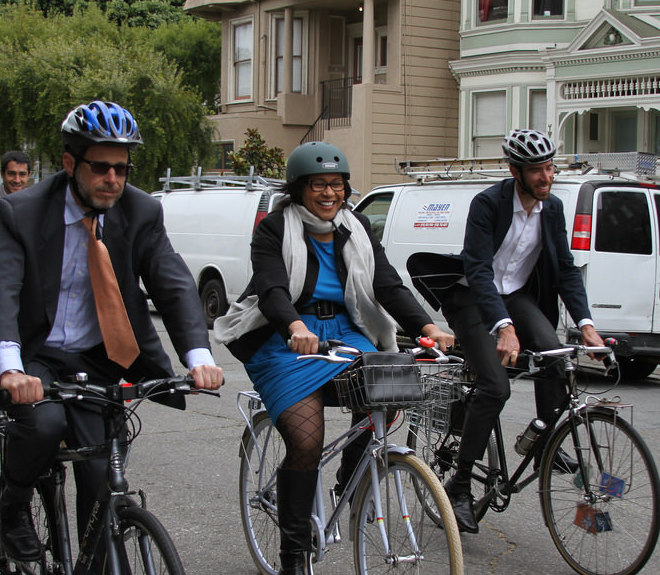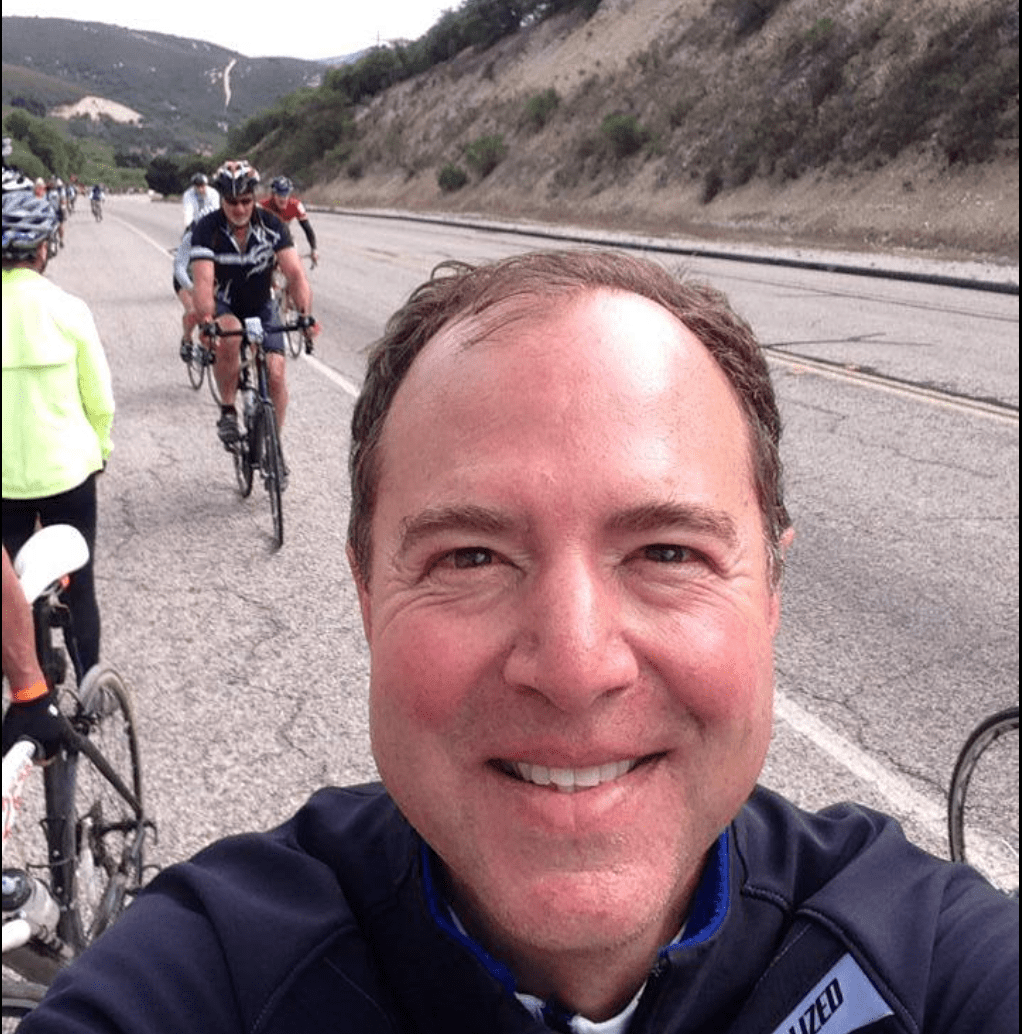Sup. Breed Backs Idaho’s Common-Sense Law: Let Bikes Yield at Stop Signs
12:09 PM PDT on July 29, 2015
Updated at 1:04 p.m. with comments from Dave Snyder of the California Bicycle Coalition.
Supervisor London Breed has come out as the first known elected official in San Francisco to publicly support a sensible change to California traffic law: allowing people on bikes to treat stop signs as yield signs.

Breed voiced her position today in today's deftly-crafted article by SF Examiner reporter Joe Fitzgerald Rodriguez on changing the stop sign law:
"I think that’s how it should be," she said, when asked if she supported San Francisco introducing Idaho-style rolling stops. “A bicycle is not a car, and they should be handled differently."
Of rolling stops, she said, "On my bicycle, that’s what I do."
"She's speaking common sense," said Dave Snyder, executive director of the California Bicycle Coalition, and former head of the SF Bicycle Coalition.
Breed's District 5 includes some of the city's busiest bike routes like the Wiggle and Page Street, where two recent captains at SFPD's Park Station have called for letter-of-the-law crackdowns on bike violations at stop signs. They aren't a major cause of injuries, and the practice is even followed by officers biking in the district.
Breed's views on bicycling issues have evolved since 2013, when she tweeted that "the biggest obstacle to creating safer streets for bicycling" was "the bad behavior of some bicyclist" [sic]. She later clarified that she meant that the perception of bad bicycling behavior made it "harder to win public and political support" for bike safety improvements on the streets.
The complaints that drive SFPD's bike crackdowns largely result from unrealistic expectations set by a strict interpretation of the state stop sign law, which treats 30-pound bikes the same as three-ton motor vehicles. The vast majority of people on bikes already negotiate stop signs safely by slowing, looking, and being prepared to yield when others have the right of way.
Allowing rolling stops on bikes "would normalize, and legalize, behavior people are doing safely anyway," Morgan Fitzgibbons of the Wigg Party told the Examiner. The Wigg Party plans to hold a "Wiggle stop-in" this evening to demonstrate the absurdity of the current stop sign law by rallying riders to make full stops at every sign.
Idaho changed its stop sign law in 1982 to clear a backup of frivolous citations filling its courts. A personal injury lawyer told the Examiner he's "never seen a single incident of injury for a cyclist arising from the stop as yield law" in 20 years. "Not one.” Boise Police Department Cpl. Tom Shuler, a bike officer for 16 years, added: "If you rode a bicycle in Idaho, you’d say, ‘Wait, the rest of the world doesn’t do this? This is ridiculous!’"
It's too early to say if Breed's bold endorsement could build support for California to overcome the politically daunting hurdle of adopt Idaho's stop sign law (Snyder is "doubtful it's worth trying"). Elected officials fear being seen as defenders of dangerous scofflaws -- an understandable concern, given the vitriolic rhetoric over the issue (a woman at a recent Park Station meeting said, "Shoot the bicyclists").
But the view of people on bikes as out-of-control deviants, which is entrenched in the SFPD, can be attributed to a system of ill-conceived laws and poorly-designed streets that criminalize the way everyday people want to get around by bike.
Here and now in SF, leaders at City Hall can have an immediate impact on making streets safer by holding police to smart policies already in place. It's time for Mayor Ed Lee and the Board of Supervisors to call on the SFPD to stop wasting limited enforcement resources in an attempt to force compliance with an impractical law, and instead fulfill its pledge to focus on the dangerous driving behaviors that result in unacceptable traffic violence every day.
The SFPD "has the authority to exercise discretion in its enforcement of the law, as it does in many cases," said Snyder. "If [SFPD Chief Greg Suhr] and Mayor Lee were more interested in safety than in letting their officers get their kicks shooting fish in a barrel, they would adopt that philosophy."
Read More:
Stay in touch
Sign up for our free newsletter



